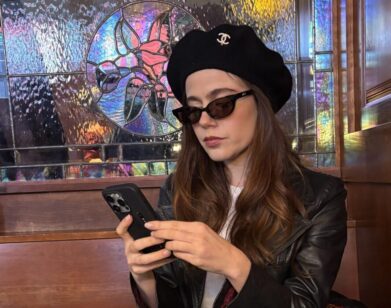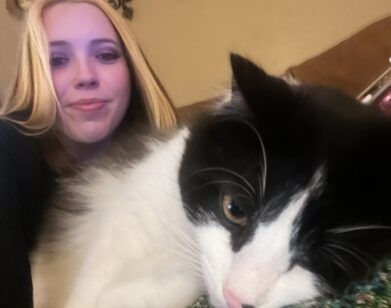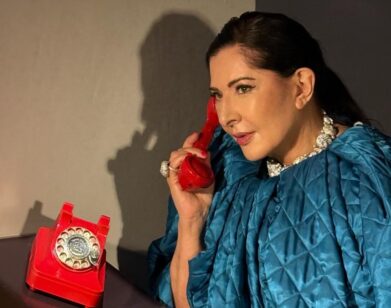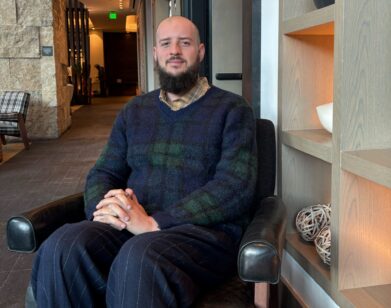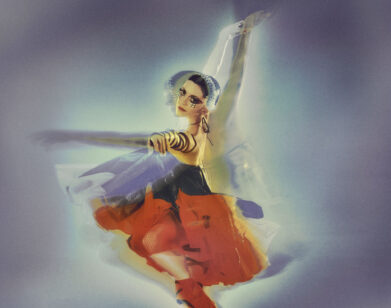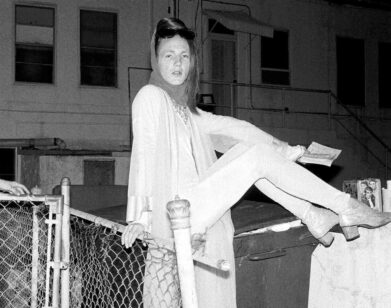Lily Cole’s Mission Impossible
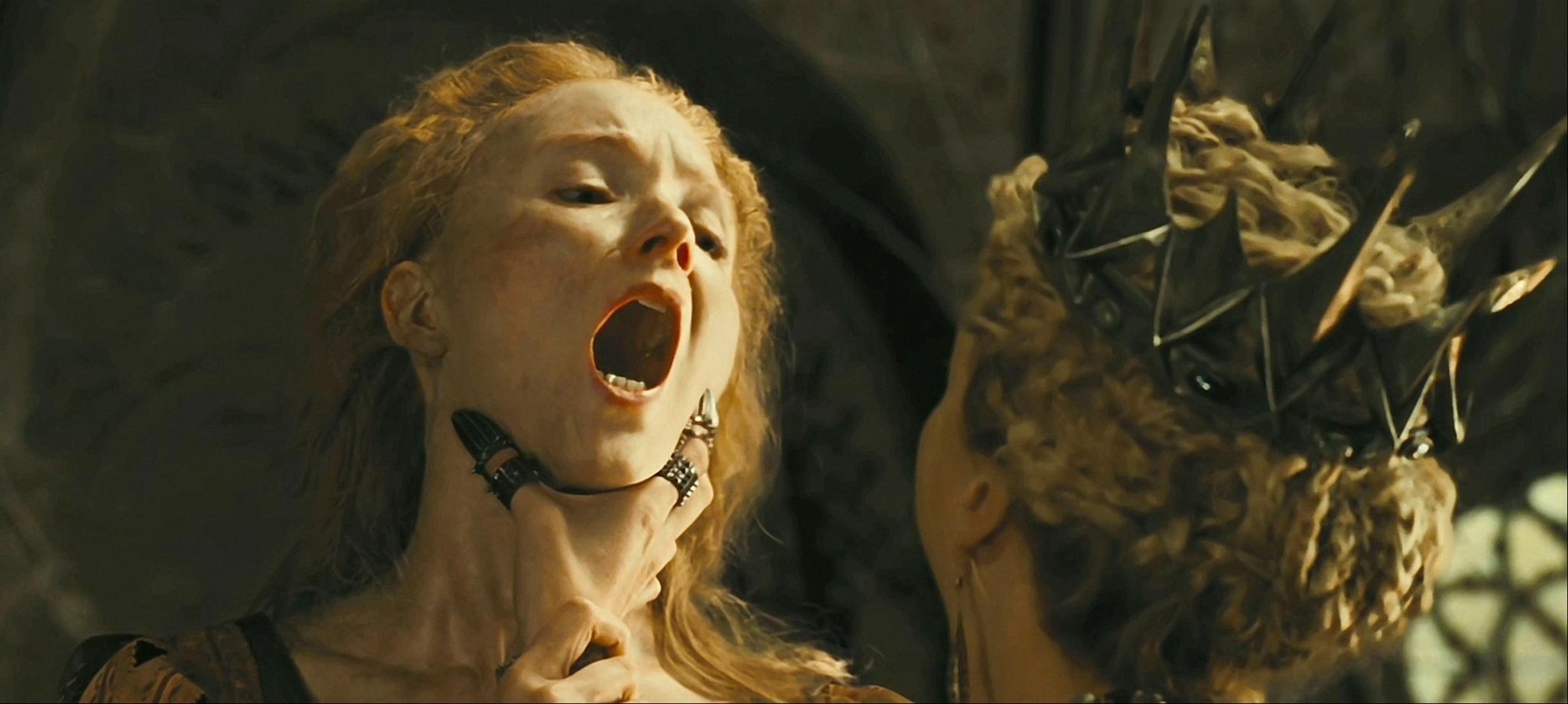
ABOVE: LILY COLE (LEFT) WITH CHARLIZE THERON IN SNOW WHITE AND THE HUNTSMAN
She’s an actress, most recently appearing in The Moth Diaries and alongside Charlize Theron in Snow White and the Huntsman. She’s a high fashion, and sometimes incendiary, model, covering the likes of British Vogue and Playboy. She’s a Double First Honors Graduate from Cambridge University (that’s the equivalent of summa cum laude, Yanks)—and now, triple-plus threat Lily Cole is looking to add social entrepreneur to her extensive résumé. Her new project impossible.com enables users to share skills and services with each other in the same way that Wikipedia allows people to gift knowledge. “Imagine if kindness was our currency,” it asks.
So far, she’s attracted Wikipedia founder Jimmy Wales as one of her early investors and recently discussed the idea at the Google Zeitgeist conference in Hertforshire, England. Onscreen, she’s also been busy, playing a barely recognizable gothic villainess in The Moth Diaries and an equally hard-to-recognize victim of the evil queen’s quest for youth in Snow White and the Huntsman. En route to a Jubilee damehood ceremony as Vivienne Westwood’s muse and plus-one, Cole talked everything from the superficial (hair color!) to the deep (art!), showing how she’s redefining what it means to be an “It” girl.
LI ZHOU: For The Moth Diaries, you transformed your signature red-haired, ethereal look to something more gothic and much darker—what was that like?
LILY COLE: It was fun, actually. I’m always open to change, and it worked for me. It was, I think, interesting for the character. I kept it for about six months afterwards because I kind of enjoyed it—it kind of felt different to have long, dark hair. Then I got sick of it and it became too much and I wanted light hair again, and I had to cover that up. Dying my hair that much made it completely fucked up [laughs], but other than that small cost, it was, yeah, it was a good experience.
ZHOU: I was wondering what your whole take on the vampire and fantasy trends were—if they’re around to stay, since they’ve been huge themes of movies and books of late?
COLE: I’m kind of open to either. I tend to prefer real ideas and real situations, [rather] than fantasy. But I also think it really depends on the filmmaker involved and the people who can make it amazing. Obviously, in the real world, there have been examples when it’s not so strong, but I really think it’s really more about context than these specific things.
With regards to vampires, I’ve never been particularly drawn to them, but I was really interested in this story in The Moth Diaries—if you read the book, there’s a real ambiguity about whether my character is a vampire or if the girl who’s telling the story is getting jealous and increasingly projects these ideas onto me; and there’s actually an interesting reality there. I spoke to Rachel Klein, the author, and the way she uses the vampire metaphor in the book, the book was written before vampires were in vogue, and if you look at the history of vampire texts, the vampire is very much the metaphor for human life in the way that one human can really suck the life out of another. I love metaphors in film and in literature and with Snow White, the metaphor in this story, you have relationships to reality, the idea of immortality, the idea of confronting age and death, elements of the story crucial to understanding good and evil.
ZHOU: You had said in another interview that becoming the character you play in Snow White, who ages rapidly, was a very “deep” experience. What strategies do you use to get into the heads of your characters?
COLE: I think empathy, largely—whether you’re playing a slightly sadistic, manipulative character as in Moth Diaries, or the victim on the other side of the coin—empathizing in different experiences, and realizing we all have the potential to be these characters in real life. Opening your mind to be a different person one way or another is quite a powerful thought process.
ZHOU: Since you studied art at Cambridge, what you see the relationship being between art and video and the various projects you’ve worked on?
COLE: So many people are like, “Oh, what are you going to do with that [degree], you know, open a gallery?” [laughs] You know, the relationship between art and a job is not quite linear, but I really love any and all manifestations of art, really respect any kind of artistic impulse, whether it’s paintings and sculptures or really good filmmaking or music. I really see the relationships between these different mediums as very fluid. I think you see that nowadays, in this postmodern context, there’s much more use of different mediums in contemporary art. There are people like Steve McQueen, artists who work in the contemporary art world and make films, who make that relationship more tangible. For me, if you’re a creative person, you can choose to make a painting, you can choose to make a film.
ZHOU: In art that you see in a gallery, there is that subjectivity—two people can come away with completely different interpretations. Do you see that same experience in the work you’ve done for film?
COLE: I think subjectivity plays into everything. It’s unavoidable; you couldn’t avoid it if you tried. I think, potentially, a lot more commercial movies, it seems to be that the people making the films are trying to elicit the same reaction. I think a lot of the most interesting work in art and in films are often kind of polarized opinions and affect people in very different ways, which may be less successful commercially, but they elicit a dialogue that’s quite interesting.
ZHOU: What impact would you say your time at Cambridge has had on your life and the projects you work on now?
COLE: A huge impact—I think all experiences have impacted what I want to do, how I create. It’s hard to pinpoint exactly how it’s affected me. But to be inspired by extraordinary thinkers, minds, not just artists, but other fields as well. I don’t know, I don’t know how exactly it will manifest, but I’m definitely more informed that I was a few years earlier.
ZHOU: Last time you spoke with Interview, in 2009, you mentioned you didn’t drink coffee—is that still the case?
COLE: I wish I still didn’t drink coffee, oh my god. [laughs] It gives me energy for a few hours and then I crash and get into a cyclical kind of need for it. I’ve been so busy in the last week, drinking alcohol to wake up in the evenings, coffee to wake up in the days. Hopefully, I’ll break it soon.
ZHOU: That does seem to be the most potent combination. [laughs] So later this year, you will be premiering a television show called Lily Cole’s Art Matters—can you talk about that?
COLE: So I was approached by the production company by it, and I worked with them on the concept of it and the artists I’d be interested in working with for it. We’ve had an amazing response—I’m spending a few days with each of them and really being in dialogue with them and trying to hopefully bring the way they see the world to a wider audience is the main goal.
As the generalization goes about the art industry, people can be really challenging and thought-provoking in their thinking and questioning the status quo, and it’s really important that the status quo can be questioned and that there are people doing that.
ZHOU: Given the busy times you’ve been having, what’s next?
COLE: Directing the impossible.com project and pouring my heart and soul into it. That, along with making film and making art, would be ideal.
SNOW WHITE AND THE HUNTSMAN IS OUT NOW. VISIT IMPOSSIBLE.COM.

